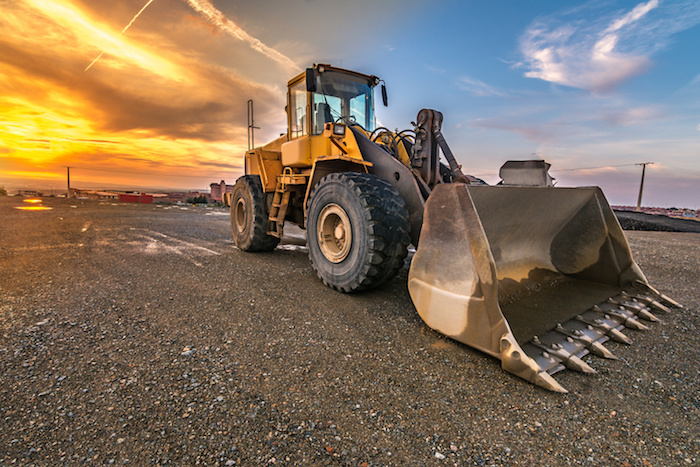Boom Lift Rental in Tuscaloosa, AL: Find Affordable Options for Your Projects
Boom Lift Rental in Tuscaloosa, AL: Find Affordable Options for Your Projects
Blog Article
Checking Out the Financial Conveniences of Renting Building Tools Contrasted to Having It Long-Term
The choice in between possessing and renting building tools is crucial for financial management in the market. Renting out offers immediate expense financial savings and functional adaptability, enabling business to assign sources extra successfully. On the other hand, possession features substantial lasting economic dedications, including maintenance and depreciation. As professionals evaluate these options, the impact on money circulation, task timelines, and technology accessibility ends up being significantly considerable. Comprehending these nuances is crucial, specifically when taking into consideration how they straighten with specific project needs and financial strategies. What variables should be focused on to make sure optimal decision-making in this facility landscape?

Cost Contrast: Renting Vs. Possessing
When reviewing the monetary effects of renting out versus having building and construction equipment, a comprehensive price contrast is essential for making notified decisions. The selection in between leasing and owning can dramatically affect a business's bottom line, and recognizing the connected costs is vital.
Leasing building and construction devices normally involves lower ahead of time prices, allowing services to allocate funding to various other operational requirements. Rental arrangements commonly include versatile terms, allowing companies to gain access to advanced machinery without long-lasting dedications. This flexibility can be particularly helpful for short-term jobs or rising and fall work. Nevertheless, rental costs can build up over time, possibly going beyond the cost of possession if devices is needed for a prolonged duration.
Conversely, owning construction tools calls for a considerable first investment, along with ongoing expenses such as financing, insurance policy, and depreciation. While possession can cause long-lasting cost savings, it also locks up funding and may not provide the same degree of flexibility as leasing. Furthermore, having equipment necessitates a commitment to its usage, which might not constantly straighten with task needs.
Inevitably, the choice to possess or lease ought to be based on an extensive analysis of particular task needs, economic capacity, and long-term critical goals.

Upkeep Costs and Obligations
The option between having and renting out building and construction tools not only includes monetary considerations however additionally includes recurring upkeep costs and obligations. Possessing devices calls for a significant commitment to its upkeep, that includes routine inspections, repairs, and possible upgrades. These duties can quickly accumulate, causing unanticipated expenses that can stress a budget plan.
On the other hand, when leasing equipment, maintenance is generally the duty of the rental firm. This plan enables professionals to prevent the economic burden connected with wear and tear, as well as the logistical difficulties of scheduling fixings. Rental contracts typically consist of stipulations for upkeep, indicating that service providers can focus on completing jobs instead than stressing over devices problem.
In addition, the diverse variety of tools readily available for rent makes it possible for firms to pick the most recent designs with innovative modern technology, which can enhance efficiency and productivity - scissor lift rental in Tuscaloosa, AL. By deciding for services, services can stay clear of the lasting liability of equipment depreciation and the linked maintenance migraines. Inevitably, reviewing maintenance expenditures and responsibilities is important for making a notified choice regarding whether to possess or rent out building and construction equipment, significantly affecting overall job expenses and operational performance

Depreciation Influence On Possession
A significant factor to take into consideration in the decision to possess construction equipment is the influence of depreciation on overall ownership costs. Depreciation represents the decline in value of the tools in time, influenced by elements such as use, wear and tear, and advancements in innovation. As tools ages, its market price reduces, which can substantially impact the proprietor's financial setting when it comes time to offer or trade the devices.
For building firms, this depreciation can convert to significant losses if the devices is not utilized to its max possibility or if it lapses. Owners must account for devaluation in their financial forecasts, which can cause greater general prices compared to renting. Additionally, the tax implications of devaluation can be complicated; while it might provide some tax obligation advantages, these are commonly offset by the truth of lowered resale worth.
Eventually, the problem of depreciation emphasizes the value of comprehending the long-term monetary dedication associated with having building and construction equipment. Firms should meticulously examine how usually they will use the tools and the potential financial influence of depreciation to make an enlightened choice concerning ownership versus leasing.
Financial Adaptability of Renting Out
Renting building tools provides substantial economic flexibility, enabling firms to allocate resources extra successfully. This versatility is particularly important in a market identified by fluctuating job needs and varying workloads. By deciding to rent, businesses can avoid the substantial capital outlay required for purchasing equipment, protecting cash flow for other functional demands.
Additionally, renting equipment enables firms to customize their equipment selections to specific job needs without the long-lasting commitment related to ownership. This means that organizations can easily scale their tools stock up or down based upon existing and expected job demands. As a result, this flexibility minimizes the risk of over-investment in machinery that might come to be underutilized or obsolete with time.
Another financial benefit of renting out is the potential for tax benefits. Rental repayments are typically considered operating costs, permitting for prompt tax deductions, unlike depreciation on owned tools, which is spread out over a number of years. scissor lift rental in Tuscaloosa, AL. This prompt cost recognition can additionally improve a firm's cash money placement
Long-Term Project Factors To Consider
When assessing the lasting demands of a building service, the decision between renting and having equipment comes to be much more complex. Trick factors to consider consist of project period, frequency of usage, and the nature of upcoming tasks. For tasks with extended timelines, acquiring devices might seem useful because of the possibility for lower total costs. Nevertheless, if the equipment will not be made use of regularly throughout projects, having might result in underutilization and unneeded expenditure on storage space, insurance, and upkeep.
Additionally, technological improvements posture a substantial consideration. The construction industry is progressing rapidly, with new devices offering boosted performance and safety and security attributes. Renting out permits firms to access the current technology without committing to the high upfront prices linked with purchasing. This flexibility is specifically beneficial for businesses that deal with diverse projects requiring various kinds of devices.
In addition, monetary stability plays a critical duty. Having equipment usually involves significant capital expense and depreciation problems, while leasing permits even more foreseeable budgeting and cash money flow. Inevitably, the scissor lift rental in Tuscaloosa option in between having and renting must be aligned with the critical objectives of the building and construction company, thinking about both expected and existing job needs.
Conclusion
In final thought, renting out building and construction tools offers substantial monetary advantages over long-lasting ownership. Inevitably, the choice to rent out instead than very own aligns with the vibrant nature of building and construction projects, permitting for flexibility and access to the newest devices without the monetary concerns connected with ownership.
As equipment ages, its market value diminishes, which can considerably affect the owner's financial placement when it comes time to trade the tools or offer.
Leasing building devices uses considerable financial flexibility, allowing firms to designate resources much more efficiently.In addition, renting out devices allows companies to customize their devices options to specific task needs without the long-lasting commitment linked with possession.In verdict, leasing construction devices offers significant financial advantages over lasting possession. Ultimately, the choice to lease rather than very own aligns with the dynamic nature of building and construction jobs, permitting for versatility and accessibility to the most recent equipment without the economic problems associated with possession.
Report this page